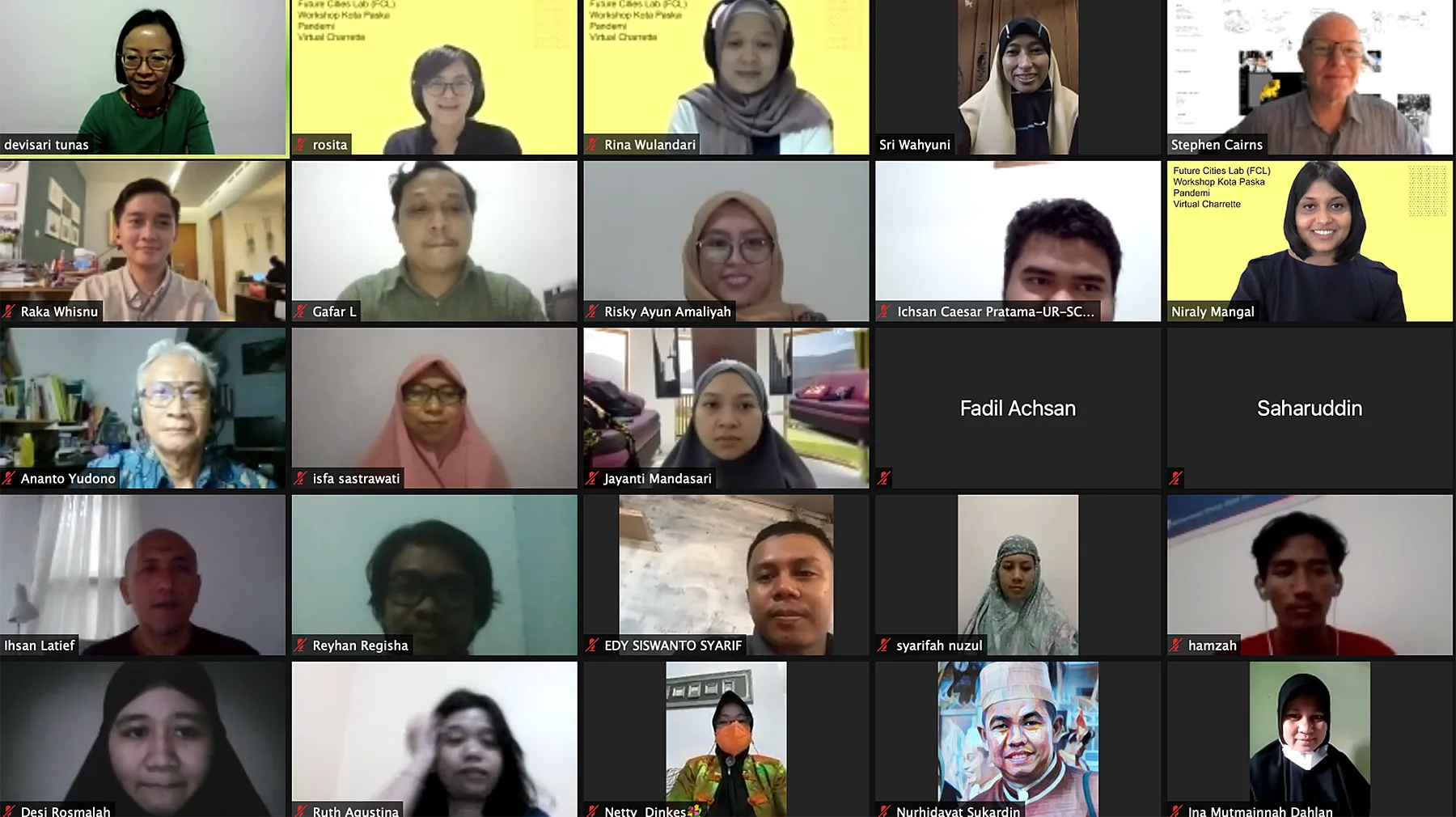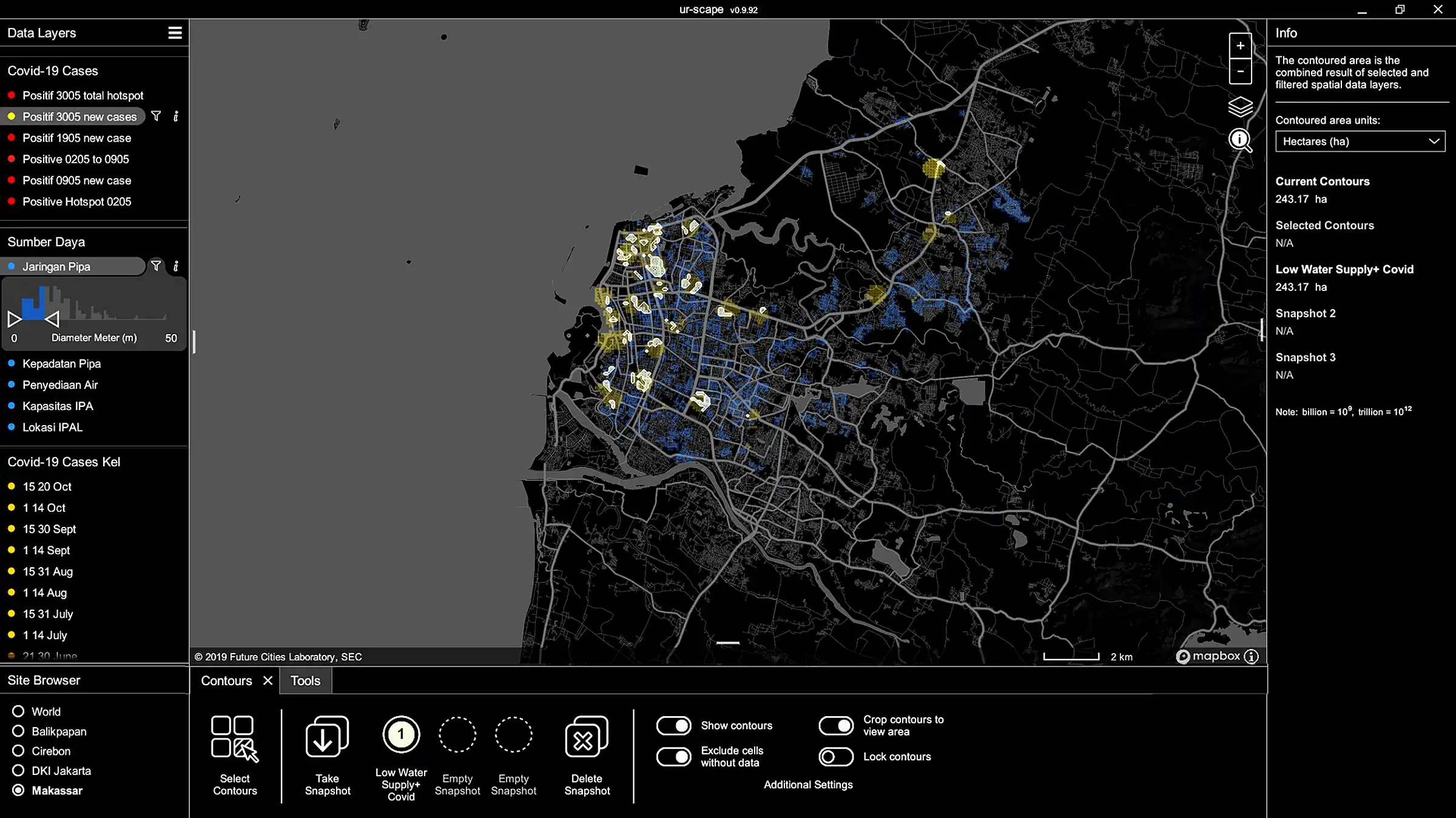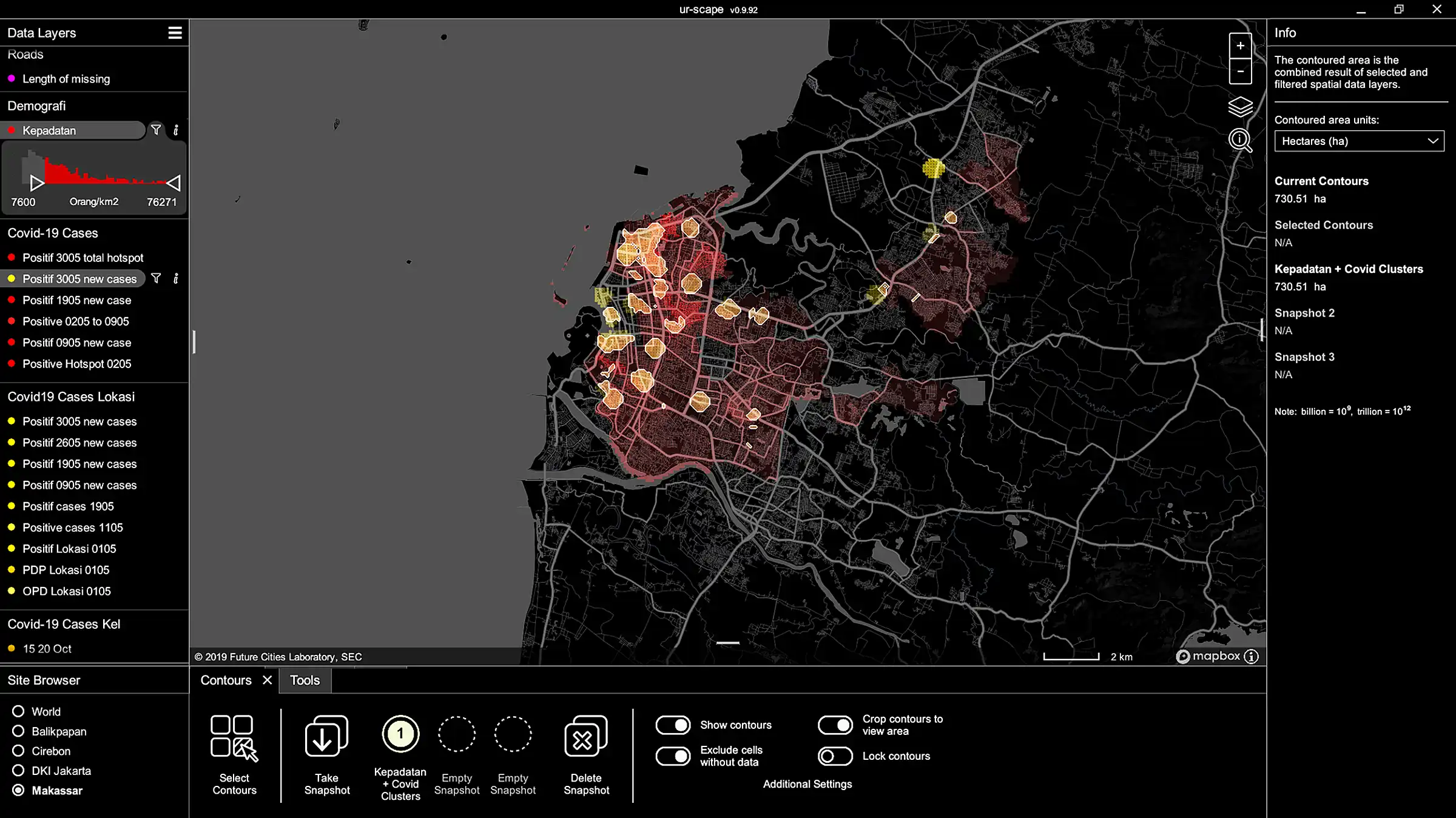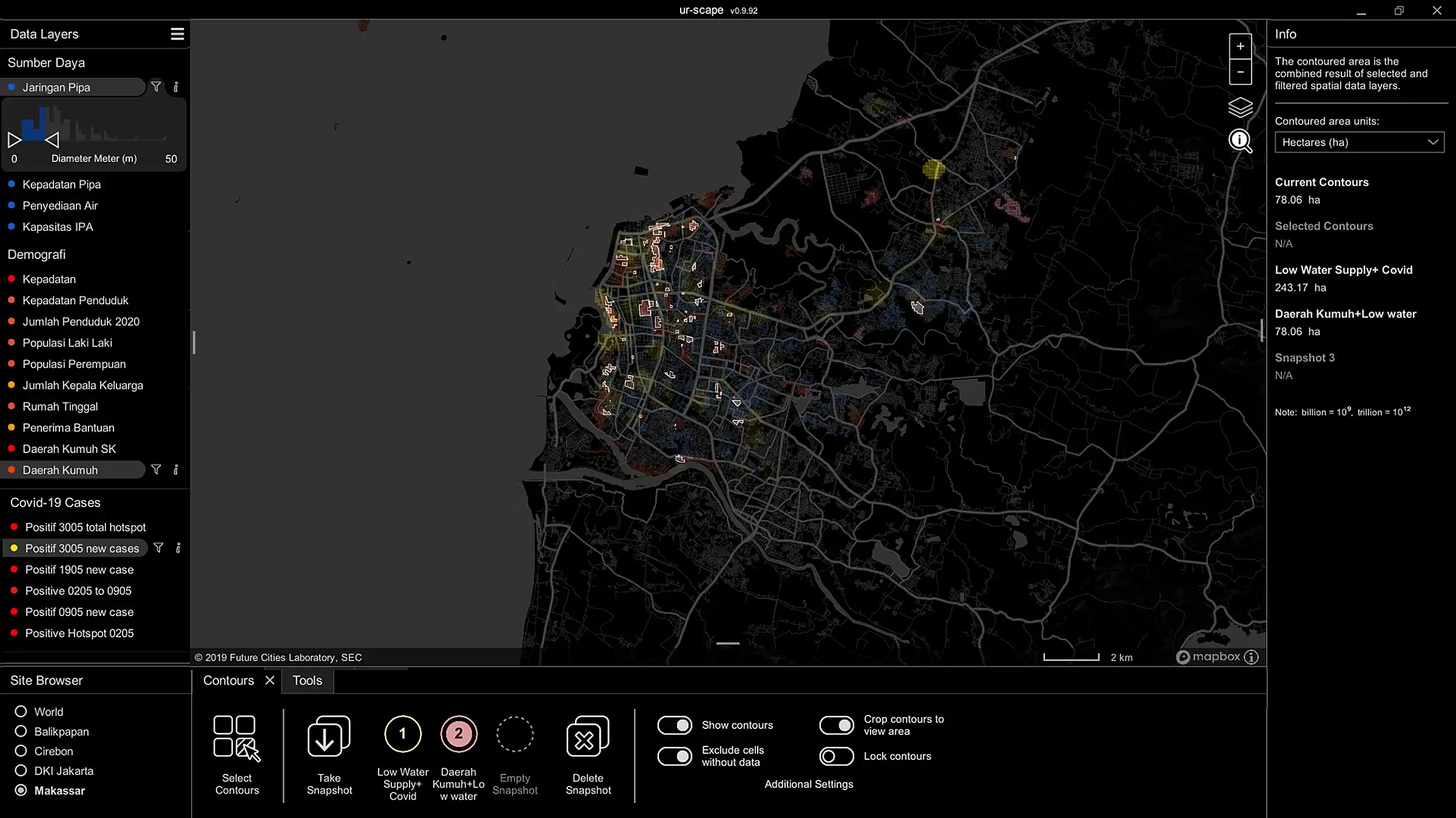Living with COVID-19
Makassar ID

This project incorporated rapid response research and policy focuses concerning the spread of COVID-19 in the city of Makassar in Indonesia. The project involved leveraging on the available spatial, socio-economic and pandemic data to better understand how the pandemic was interacting with the city and its inhabitants, and to inform future responses to such public health challenges. As the available data was patchy and uneven in quality, the project focused on how to best curate, manage and correlate the data to guide immediate responses, and how to design a decision framework that would support longer term urban and regional planning and design efforts. We asked:
- What kinds of data are relevant to understanding the impacts of COVID-19 on cities?
- How might existing and new data be gathered, managed and displayed?
- What are the various ways to analyse such data?
- How might those analyses support transparent and collective decision making, urban design and planning in the future?
The project developed a Design-Research (DR) framework to support future planning combining the transdisciplinary creativity, stakeholder participation and visual communication of design, and the evidence-based insights, system perspectives and quantitative tools of scientific research. The approach supplemented the existing relatively static standard categories with a much broader set of spatial, temporal and social data, facilitating broader engagement with the data a cross a range of city and public health actors and transparent and collective decision making.
The research was presented in the e‑conference entitled ‘Regions in Recovery Global E‑Festival’ to address the theme of ‘Disentangling COVID-19: New Methodological Approaches’ (21 June 2021)


